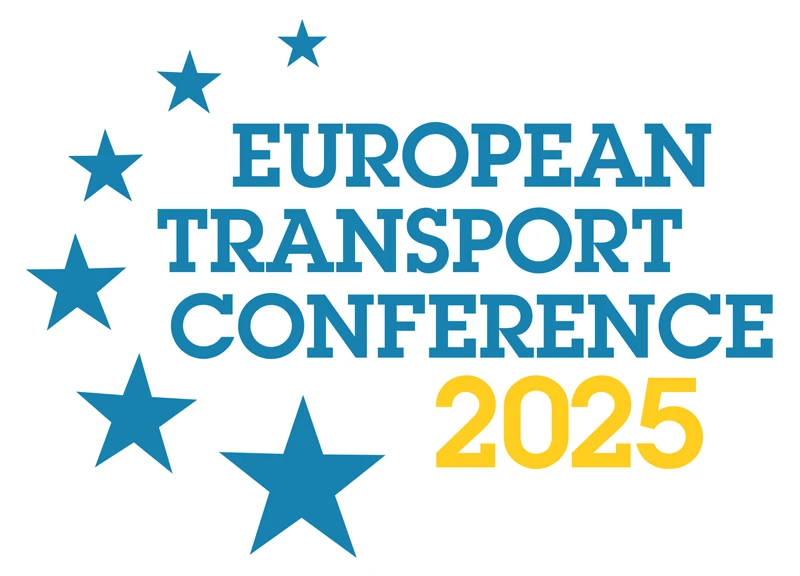-
Past ETC Papers

Browse, search and view papers from the past AET Conferences.
-
Members' Area

AET promotes networking and exchange of ideas, information and opportunities amongst members.
Conference Papers 2018
Dublin, Ireland
ETC Conference Papers 2018
A smart data integration framework: seeking the benefits for the end users (trucking companies)
Seminar
Day 2 (11 Oct 2018), Session 7, Truck Automation, 16:15 - 18:15
Status
Accepted, awaiting documents
Submitted by / Abstract owner
Valentin Carlan
Authors
Valentin Carlan*, Thomas Huybrechts**, Peter Hellinckx**, Thierry Vanelslander*
*Department of Transport and Regional Economics, University of Antwerp, Belgium
** University of Antwerp - imec, IDLab - Faculty of Applied Engineering, Belgium
Short abstract
A universal middleware framework is developed to achieve a flexible and an extended data integration layer. This innovation brings benefits to road transporters. Yet, due to low profit margins, the willingness to pay for new ICT innovation is low.
Abstract
An own review of information and communication technologies (ICT) used in contemporary transport operations shows a high heterogeneity of systems, data sources, applications and working practices. This mix leads to segregation of the logistics supply chain and hinders further optimization possibilities. There is no coordination or standardization that ensures a straightforward approach to develop and implement cross-sector IT solutions. Different integrative state-of-the-art solutions are non-optimal, not flexible and relatively expensive to maintain. These solutions force transport companies to lock into their initial software solution, limiting any migration or integration opportunities with other third-party software.
In this context, a universal middleware framework is developed to achieve a more flexible and extended data integration among transport companies. The framework consists of two core layers. The first layer addresses the data acquisition and presentation interfaces, while the second integrates data pipelining and processing. The current paper reports on an own exploration initiative conducted by researchers in logistics and computer science by bringing together complementary expertise.
This research starts by investigating the current working practices of road transport operators. It identifies the ICT solutions used at an operative level together pointing out the necessities to further integration, functionalities or applications development. The method used consists of three steps. Within the first step, interviews with road transport companies representatives are held. Managers, planners, dispatchers or drivers, but not limited, are engaged in semi-structured discussions. The length of the interviews depends on the role and interest of the organization in implementation of ICT solutions on an operative level. This part identifies common working practices and operational barriers that logistics operators came across. The second part explores the practical implementation of a middleware framework. Within this step, technical barriers are identified. Moreover, several practical solutions to data integration and applications development are proposed. The third step identifies the user benefits and their availability-to-pay for implementing the proposed practical solutions.
Based on the outcome put forward by each step, concluding remarks are made with regard to: the contemporary working practices, the ICT solutions used at operational level, the technical barriers towards further data integrations, the benefits to road transport companies from data integration and their availability-to-pay to enjoy these benefits. The research points out that, although ICT solutions exist, most decisions and communication with regard to operational matter in road transport are handled manually. Road transport operators face difficulties and have to use multiple ICT systems, handle different data formats and/or manage system-to-system communications. This research finally shows that, by implementing a universal middleware framework, savings with regard to operational planning, communication or administration are made. Yet, due to the fact that road transport operators are confronted with low profit margins, the willingness to pay for new ICT innovation is low.
Stream
Freight and Logistics (European Transport Conference 2018)
Programme committee
Freight and Logistics
Topic
The Wider Economic Benefits of Transport Investment
Documents:
No documents yet.
Association For
European Transport
Forester House
Doctors Lane
Henley-in-Arden
Warwickshire, UK
B95 5AW
+44 (0) 15 64 793552
VAT number: 710 1866 64
Conference Supporters & Endorsers




Legal Entity
The Association for European Transport is registered as an Association ('vereniging') with the Chamber of Commerce for Haaglanden in The Netherlands under company number 27170096.
Built on Zenario




